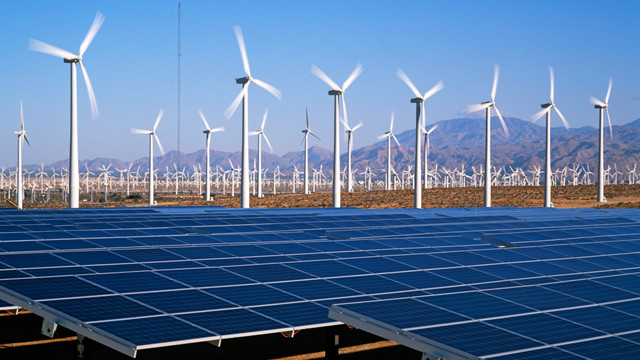Table of Contents
- Introduction to Renewable Energy
- Types of Renewable Energy Sources
- Solar Energy
- Wind Energy
- Hydroelectric Power
- Geothermal Energy
- Biomass Energy
- Benefits of Renewable Energy
- Challenges and Barriers
- Global Impact and Adoption
- Future Trends in Renewable Energy
- Conclusion
Introduction to Renewable Energy
In an era where sustainability is paramount, renewable energy emerges as a beacon of hope. Unlike fossil fuels, which deplete finite resources and contribute to environmental degradation, renewable energy sources offer a clean and sustainable alternative. This blog explores the various forms of renewable energy, their benefits, challenges, and the global efforts towards a renewable future.
Types of Renewable Energy Sources
Solar Energy
Solar power harnesses energy from the sun using photovoltaic cells, converting sunlight into electricity. This technology has seen rapid advancements, making solar panels more efficient and affordable for residential, commercial, and industrial use.
Wind Energy
Wind turbines capture the kinetic energy of wind and convert it into electricity. Wind farms, both onshore and offshore, have become increasingly prevalent in many countries due to their scalability and minimal environmental impact.
Hydroelectric Power
Hydropower utilizes the energy of flowing or falling water to generate electricity. Dams and reservoirs are key components of hydroelectric power plants, providing a reliable and consistent source of renewable energy.
Geothermal Energy
Geothermal energy taps into heat from within the Earth’s crust to generate electricity or heat buildings directly. This form of energy is highly reliable and available around the clock, making it a steady contributor to the renewable energy mix.
Biomass Energy
Biomass energy involves using organic materials such as wood, crop residues, or waste to produce heat or electricity. It is a versatile renewable energy source that can help reduce greenhouse gas emissions when managed sustainably.
Benefits of Renewable Energy
Renewable energy offers numerous advantages:
- Environmental Sustainability: Reduces carbon emissions and mitigates climate change.
- Energy Security: Diversifies energy sources, reducing dependence on imported fuels.
- Job Creation: Supports local economies through the growth of green energy sectors.
- Cost Competitiveness: Becoming increasingly cost-effective compared to fossil fuels.
Challenges and Barriers
Despite its promise, renewable energy faces challenges such as intermittency (in the case of solar and wind), grid integration issues, and initial investment costs. Policy and regulatory frameworks also influence the pace of renewable energy adoption globally.
Global Impact and Adoption
Countries worldwide are increasingly investing in renewable energy infrastructure. Leading nations such as China, the United States, and Germany are setting ambitious targets for renewable energy deployment, driving innovation and technological advancement in the sector.
Future Trends in Renewable Energy
The future of renewable energy looks promising with ongoing research into energy storage solutions, advancements in renewable technologies, and the emergence of smart grids. These developments aim to enhance the reliability and efficiency of renewable energy systems.
Conclusion
Renewable energy represents a pivotal solution in combating climate change and achieving sustainable development goals. As technology continues to evolve and economies of scale improve, renewable energy sources like solar, wind, hydroelectric, geothermal, and biomass will play an increasingly vital role in our global energy mix.
FAQs about Renewable Energy
What is renewable energy?
Renewable energy comes from natural sources that are constantly replenished, such as sunlight, wind, water, and organic matter.
Why is renewable energy important?
Renewable energy is crucial for reducing greenhouse gas emissions, improving energy security, and fostering economic growth through sustainable practices.
How can I contribute to renewable energy adoption?
Individuals can support renewable energy by advocating for policies that promote its use, investing in renewable energy technologies, and reducing personal energy consumption.
Is renewable energy cost-effective?
Yes, renewable energy costs have been decreasing, making them increasingly competitive with fossil fuels in many regions.
By embracing renewable energy, we pave the way for a cleaner, greener future. Together, we can harness the power of renewable resources to build a sustainable world for generations to come.
3.5

1 Comment
Pingback: Exploring the 5 Main Types of "Renewable Energy": A Sustainable Future